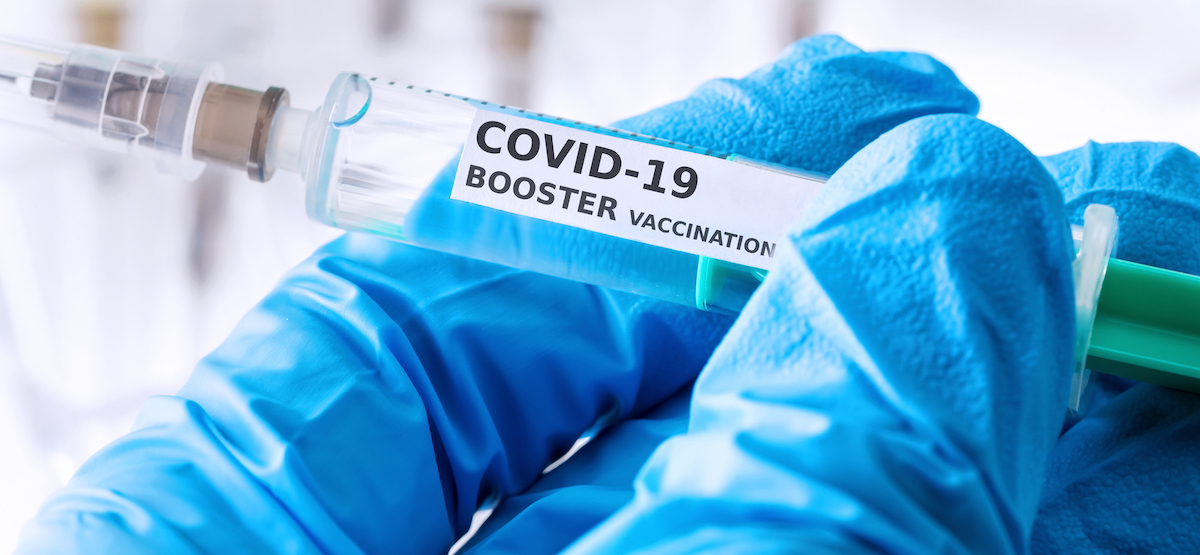<< Back
What’s The Difference Between a Booster and a Third (or Fourth) Dose of COVID Vaccine?

October 27, 2021
A COVID-19 booster shot is a third shot, except when it’s not. An additional dose is always a third dose, but it’s not a booster.
Confusing? Let’s take a look at boosters, third doses and who gets what.
What Is a Booster Shot?
A booster is another vaccine dose after protection from the original treatment (one shot or two, depending on the vaccine) diminishes. The booster restores a level of immunity needed to fight the virus.
“It’s certainly not a new concept,” says Dr. Ulysses Wu, Hartford HealthCare’s System Director of Infection Disease and Chief Epidemiologist. “There are booster shots for a lot of vaccines. We’ve historically been required (to have them), or it’s been necessary to boost the immune system. So it’s certainly not surprising data that Johnson & Johnson, once you’re given an extra dose, you’re going to have a boost in your immune response.”
The Food and Drug Administration now says it’s safe to mix vaccine types, so if you’ve already received two doses of the Pfizer-BioNTech vaccine it’s OK to get a Moderna booster. A National Institutes of Health study, in fact, found that a Moderna booster produced the highest antibody levels after any of the three available vaccines. Note: A Moderna booster is a half dose of the original.
Eligibility: Anyone 65 years old and up, or certain people at least 18 with underlying medical conditions or working in a high-risk environment, can receive a booster of any type. If you received the single-dose Johnson & Johnson vaccine, no matter your age, you can receive a booster of your choice at least two months after the initial J&J dose. For more detailed information, click here.
What is a Third (or Additional) Vaccine Dose?
A third dose applies to people with weakened immune systems who need stronger protection despite having two doses of a mRNA vaccine, Pfizer-BioNTech or Moderna. Those eligible can receive the third dose as soon as 28 days after the second does. If you’re unsure if you’re eligible, talk to your doctor.
The Centers for Disease Control and Prevention now says some immunocompromised people can receive a booster shot at least six months after completing their primary three-dose series. So the booser would be their fourth COVID-19 vaccine shot.
For more detailed eligibility information, click here.
What is Waning Immunity?
Even when a vaccine’s effectiveness diminishes, it still offers protection against serious illness and hospitalization.
Recent research has shown how long each vaccine’s protection lasts:
Pfizer-BioNTech: The vaccine, 88 percent effective at preventing an infection for a month after the first dose, was only 47 percent effective at preventing an infection five months later, according to research — financed by Pfizer — published in The Lancet. It remained 90 percent effective against the Delta variant for about four months. Effectiveness then dropped to 53 percent after five months after vaccination. And it offered 93 percent protection against hospitalization for up to six months.
Moderna: This vaccine was 93 percent effective at preventing illness — more than 98 percent effective against severe illness — five months after the second dose in a recent Brigham and Women’s Hospital of Boston study.
Johnson & Johnson: A new study of more than 620,000 veterans found effectiveness dropped from 88 percent in March to only 3 percent in August. In the same study, Moderna’s protection dropped from 92 percent to 64 percent and Pfizer-BioNTech from 91 percent to 50 percent.